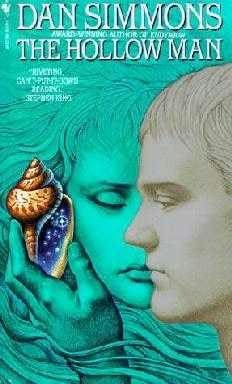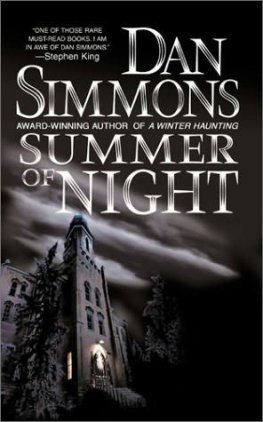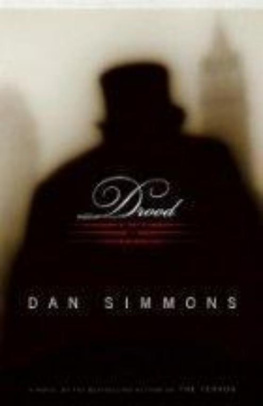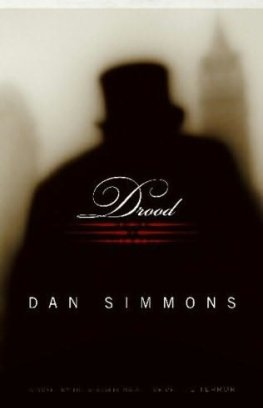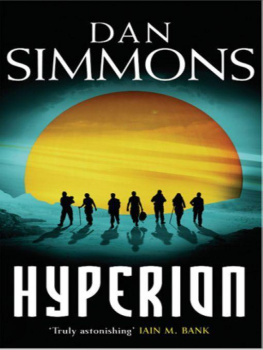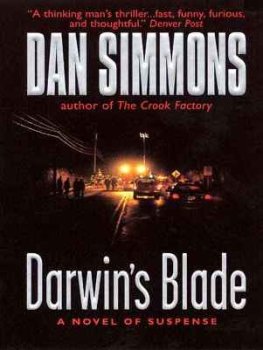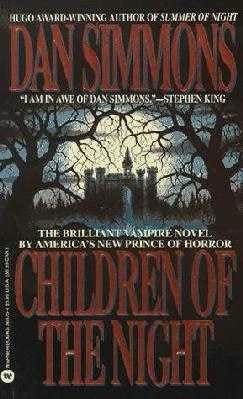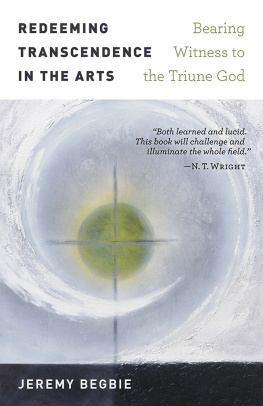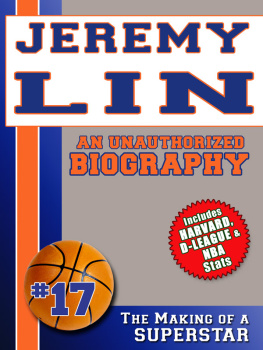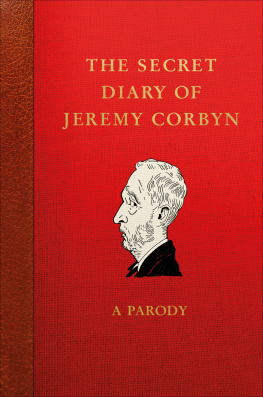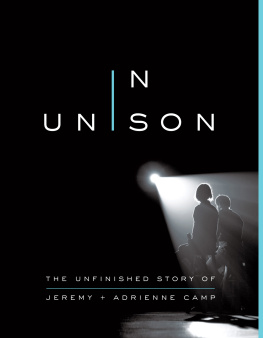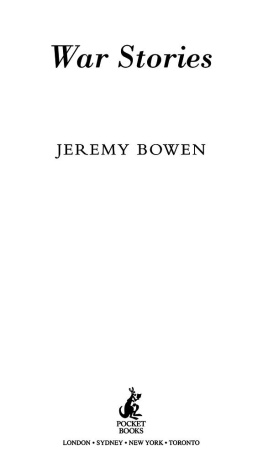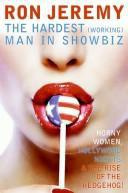The Hollow Man
A novel by Dan Simmons
The author would like to thank the following people for turning an impossible task into a merely difficult one:
Sue Bolton and Edward Bryant for reading the book that was written rather than the one that was expected by others. Tabitha and Steve King for the long, cross-country reading marathon and for the helpful words that followed. Niki Gernold for demonstrating the mechanics of telepathy. Betsy Mitchell for showing the courage of our shared convictions. Ellen Datlow for liking (and buying) the story that began it all, lo these ten long years ago. Richard Curtis for eschewing obfuscation via quintessential professionalism. Mathematician Ian Stewart for provoking a passionate response from a mathematical illiterate. Karen and Jane Simmons for their love, support, and tolerance as I perversely kept trying to turn a merely difficult task back into an impossible one.
In addition to these wonderfully alive people, I must thank several who are no longer with us:
Dante Alighieri, John Ciardi, T. S. Eliot, Joseph Conrad, and Thomas Aquinas
All of whom have explored, far more eloquently than my powers would ever allow, the obsessive theme of
Wandering between two worlds, one dead
The other powerless to be born
Thou shalt prove how salty tastes anothers bread, and how hard a path it is to go up and down anothers stairs.
Dante,
Paradiso XVIIEyes I dare not meet in dreams
In deaths dream kingdom
These do not appear.
T. S. Eliot,
The Hollow MenBremen left the hospital and his dying wife and drove east to the sea. The roads were thick with Philadelphians fleeing the city for the unusually warm Easter weekend, so Bremen had to concentrate on traffic, leaving only the most tenuous of touches in his wifes mind.
Gail was sleeping. Her dreams were fitful and drug-induced. She was seeking her mother through endlessly interlinked rooms filled with Victorian furniture. Images from these dreams slid between the evening shadows of reality as Bremen crossed the Pine Barrens. She awoke just as Bremen was leaving the parkway, and for the few seconds that the pain was not with her, Bremen was able to share the clarity of sunlight falling across the blue blanket at the foot of her bed; then he shared the quick vertigo of confusion as she thoughtonly for a secondthat it was morning on the farm.
Her thoughts reached for him just as the pain returned, stabbing behind her left eye like a thin but infinitely sharp needle. Bremen grimaced and dropped the coin he was handing the tollbooth attendant.
Something wrong, pal? Bremen shook his head, fumbled out a dollar, and thrust it blindly at the man. Tossing his change into the Triumphs cluttered console, he concentrated on pushing the little car up through its gears while shielding himself from the worst of Gails pain. Slowly the agony faded, but her confusion washed over him like a wave of nausea.
She quickly gained control despite the shifting curtains of fear that fluttered at the edges of her consciousness. She subvocalized, concentrating on narrowing the spectrum of what she shared to a simulacrum of her voice.
Hi, Jerry.
Hi, yourself, kiddo. He sent the thought as he turned onto the exit of Long Beach Island. Bremen shared the visualthe startling green of grass and pine trees overlaid with the gold of April light, the sports cars shadow leaping along the curve of the embankment as he followed the cloverleaf down to the road. Suddenly there came the unmistakable salt-and-rotting-vegetation scent of the Atlantic, and he shared that with her as well.
Nice. Gails thoughts were slurred with the static of too much pain and medication. She clung to the images he sent with an almost feverish concentration of will.
The entrance to the seaside community was disappointing: dilapidated seafood restaurants, overpriced cinder-block motels, endless marinas. But it was reassuring in its familiarity to both of them, and Bremen concentrated on seeing all of it. Gail began to relax a bit as the terrible swells of pain abated, and for a second her presence was so real that Bremen caught himself half turning to speak to her in the passengers seat. The pang of regret and embarrassment was sent before he could stifle it.
The driveways of beach homes were filled with families unpacking station wagons and carrying late dinners to the beach. The evening shadows carried the nip of early spring, but Bremen concentrated on the fresh air and the warmth of the low strips of sunlight as he drove north to Barnegat Light. He glanced right and caught a glimpse of half a dozen fishermen standing in the surf, their shadows intersecting the white lines of breakers.
Monet, thought Gail, and Bremen nodded, although he had actually been thinking about Euclid.
Always the mathematician. Gails voice faded as the pain returned. Half-formed sentences scattered like the spray rising from the white breakers.
Bremen left the Triumph parked near the lighthouse and walked through low dunes to the beach. He threw down the tattered blanket that they had carried so many times to just this spot. A group of children ran past, squealing as they came close to the surf. Despite the cold water and rapidly chilling air, they were dressed in swimsuits. One girl of about nine, all long white legs in a suit a year too small, pranced on the wet sand in an intricate and unconscious choreography with the sea.
The light was fading between the Venetian blinds. A nurse smelling of cigarettes and stale talcum powder came in to change the IV drip and to take a pulse. The intercom in the hall continued to make loud, imperative announcements, but it was difficult to understand them through the growing haze of pain. Dr. Singh arrived about six P.M. and spoke to her softly, but Gails attention was riveted on the doorway where the nurse with the blessed needle would arrive. The cotton swab on her arm was a delightful preliminary to the promised surcease of pain. Gail knew to the second how many minutes before the morphine would begin to work in earnest. The doctor was saying something.
your husband? I thought he would be staying the night.
Right here, doctor, said Gail. She patted the blanket and the sand.
Bremen pulled on his nylon windbreaker against the chill of coming night. The stars were occluded by a high cloud layer that allowed only a bit of sky to show through. Far out to sea, an improbably long oil tanker moved along the horizon. Windows of the beach homes behind Bremen cast yellow rectangles on the dunes.
The smell of steak being grilled came to him on the breeze. Bremen tried to remember whether he had eaten that day or not. His stomach twisted in a mild shadow of the pain that still filled Gail even now that the medication was working. Bremen considered going back to the convenience store near the lighthouse to get a sandwich, but remembered an old Payday candy bar he had purchased from the vending machine in the hospital corridor during the previous weeks vigil. It was still in his jacket pocket. Bremen contented himself with chewing on the rock-hard wedge of peanuts while he watched the evening settle in.
Footsteps continued to echo in the hall. It sounded as if entire armies were on the march. The rush of footsteps, clatter of trays, and vague chatter of aides bringing dinner to the other patients reminded Gail of lying in bed as a child and listening to one of her parents parties downstairs.
Remember the party where we met? sent Bremen.
Mmmm. Gails attention was thin. Already the black fingers of panic were creeping around the edge of her awareness as the pain began to overwhelm the painkiller. The thin needle behind her eye seemed to grow hotter.

